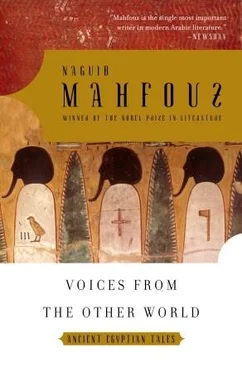The man left the courtroom, charged with the elation of youth. The approval on high for his mission seemed even more certain, as he stalked the earth with the strength of a giant, gushing forth in speech with the zeal of a youngster, his heart bursting with the optimism of a prophet. His tongue spat out a kind of white magic — a way of reasoning that even the haughty could not resist. In a brief time he was able to monopolize the ears of the tribe, to enchant their hearts, arouse their charitable feelings, and to point them in whatever direction he wished. The poor flocked to him, the rich deferred to him; the rebel and the subversive submitted to him. The basis of his appeal was Beauty and Moderation, in whose shade the poor could live in contentment, and the rich would feel that they have enough to be satisfied. In him, this sick society found a sound and skillful physician — and so they clung to his example, embracing his ideals.
The results were breathtaking, dazzling the seers and the wise men alike. They wiped out crime, put evil to flight, and remedied all ills. The spreading wings of happiness sheltered the district. The civic leaders rejoiced, praising and putting their faith in the man whom they had previously disbelieved. They reveled at finally reaching the noble end that they had spent their whole lives trying vainly to achieve.
Time marched on, smoothly and quietly, in an atmosphere of calm — as things changed into a state that people had never before seen.
The authorities were the first to feel the coming of the new age. In truth, they found themselves with nothing to do — and leisure delights only those who work for a living. The empty hours grew heavier and heavier upon them — as, with mournful eyes, they watched their majesty fade, their wind blow away, and their radiance dim into gloom.
In the past, the constable had the power to spread panic wherever he paused for an instant. But now he had become a thing that people looked back at defiantly, with blatant contempt — to the point where they trod blithely past him as they would a broken idol.
And the magistrate, who had wielded his sacred power with a divine dignity, was now sheepish with anguish and sorrow. He heard not a greeting nor an urgent request, nor did he return the welcome of those who called out to him. He felt only loneliness and isolation, until he became like an abandoned temple in the desert.
As for the doctor, groaning from hidden complaints, he locked himself in his house — neither receiving guests, nor visiting anyone else. Before this, he had hoarded money in a cooking pot, but now he had started to use up what he had saved, while his heart pounded with worry.
Meanwhile, the province rested secure in its state of grace — except for those who had deluded themselves into believing that they were the “Manufacturers of Virtue.” They were now desperate and perplexed, turning left and right for a way out of this distressing situation. Yet they could find none. The constable suffered most of all, because — though the boldest among them— he nonetheless dreaded declaring his anxieties, only to encounter deaf ears and confident, contented hearts.
Finally, his patience exhausted, he seized the opportunity offered by a meeting with his peers to wonder aloud, in a voice filled with fear, “What would we do if the Sovereign — as of tomorrow — should have no more need of our services?”
Their faces went blank. Stammering, one of them asked, “Is it likely that he could really do without us?”
Ram said, shrugging his shoulders in disdain, “What can we do to merit being kept on?”
With these words, it was as if he had lifted the lid from an overfilled kettle, and all inside it came spilling out. One of them said, “You cannot keep quiet in a fix like this.”
Shaking his fist, another shouted, “That doting old man has ruined the district!”
A third complained, “He is wrecking the human capacity for loftiness with this corrupting appeal, that hinders all progress and slaughters all fears.”
The secret talk stirred among them, as each revealed what was inside him — except for the magistrate. He stuck to his silence, gazing off into the distant horizons as though he heard nothing of what was being said around him. His apparition nearly caused many of them to give up hoping for his aid, until Ram whispered to them in embarrassment, “Don’t worry about Sumer— his heart is with us. It’s just that his tongue, which is used to speaking about Justice, will not obey him in pursuing our purpose here.”
And so they all agreed about what to do. .
One morning, the sun rose to reveal that the alien man had vanished. His disciples searched for him everywhere, ransacking every corner of the nome — without finding a single trace.
His disappearance came as a confounding surprise— and it provoked differing remarks. Some said that he had moved out of the district after making sure that his creed had been firmly rooted there. Others claimed that he had ascended into heaven after carrying out his mission. Regardless, sadness enfolded the entire province, and all those within it.
Except for those in powerful positions. They let out their breath, and — with hopes high — they each dreamed of their glory that had fled, their comfort that had disappeared. Filled with anticipation, they waited expectantly for these things to return.
But disappointment awaits whoever puts his faith in such expectant hope. When the big shots saw that the ordinary people still clung to their belief — true in their remembrance of the aged outsider — they were struck with disquiet. Their hearts were vexed, and they could not sleep.
Fuming with rage, the protector of order cried, “This situation cannot stand!”
Eyes filled with longing looked toward him. The hard work of hoping had drained them. Perceiving this, Ram said in a conspiratorial tone, “In the province of Ptah, I know of an enticing dancer, to whom the gods have given irresistible beauty. Why don’t we borrow her for a few months? I’m aware that the ruler of that district is anxious to get rid of her, for her looks are inciting strife and turmoil there. Let the nome of Khnum be her place of exile for a while, and she will no doubt sow divisions between brother and brother, and between husband and wife. The affluent will be agitated to burst the chains that they have put obediently around their own necks. Keep a lookout for a good result soon.”
And so this inspired man put into action his dangerous plan.
With joyous, gleaming eyes, they all witnessed the edifice of the old stranger’s regime break down and fall apart, stone by stone. The stomach returned to its throne, commanding necks and minds alike to bend to its rule. The devilish life came back to quiet Khnum, blowing away the serenity that had prevailed in its parts. The gang of leading citizens resumed their campaign, finding themselves once again fighting the good fight — for Virtue, Justice, and Peace.
King Userkaf’s Forgiveness

Pharaoh Userkaf was among the most magnificent monarchs of the Fifth Dynasty, who ruled Egypt by blending justice with mercy, firmness with sagacity, and force with affection. When he first took the throne, he mustered a mighty army to march into the Western Desert. His purpose was to squelch the impudence of the wandering tribes — whom his forebears had wooed to make peace — in preying on caravans, pillaging the Delta villages, and attacking peaceful citizens. He crushed them so utterly that his army came back heavily laden with both prisoners and their herds. In this way, he bolstered his own authority, making it — and the name of Egypt— things to be feared, while saving his country’s people from the savage tribes’ evil. In the shade of peace and security, he devoted all of his care to the domestic affairs of the nation and the welfare of her children. He cut out roads and dug canals, and built for himself a great pyramid at Aswan, his royal capital. His reign was one of safety, wealth, and construction, and the king dwelt, content and confident, among his glorious subjects. His breast was gladdened by his people’s love for their king, and his days and nights were brightened by the sincerity of a band of his highest subordinates in their consuming fondness for him. They were his most excellent friends and most splendid companions: his son Sahura, the heir apparent, and Horurra, his chief vizier. There was also Samun, high priest of the god Khnum, as well as Samunra, supreme commander of the Egyptian army.
Читать дальше













